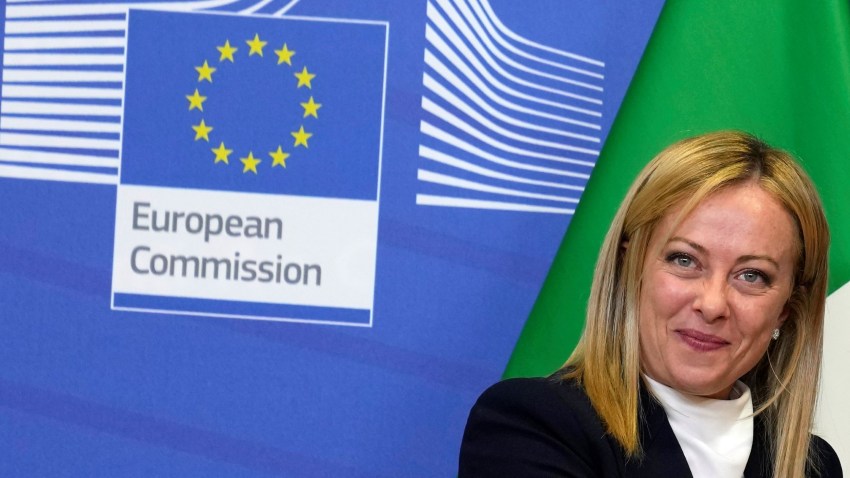Italy’s new far-right prime minister Giorgia Meloni is in Brussels today for a meeting with European Commission President Ursula von der Leyen and other senior EU officials. Such pro forma courtesy visits to Brussels are commonplace for newly inaugurated European political leaders. But Meloni is not a run-of-the-mill head of government, and the big question for her and the EU is how the bloc’s other leaders will manage the optics of working closely with Italy’s first far-right leader since World War II.
Since taking office on Oct. 22, Meloni has made efforts to distance herself from the fascist origins of her party and convince international observers—and financial markets—that she is a mainstream center-right politician. Days before she was sworn in as prime minister, Meloni forcefully condemned remarks made by former Prime Minister Silvio Berlusconi, one of her coalition partners, in which he praised Russian President Vladimir Putin and blamed Ukrainian President Volodymyr Zelenskyy for the outbreak of the war in his country.
In addition, Meloni used her first address to the Italian parliament to offer a rousing condemnation of former Italian dictator Benito Mussolini, describing his 1938 racial laws that sent Italian Jews to death camps as “the worst moment in Italian history.” Though she has praised Mussolini in the past, Meloni told lawmakers in her speech that she “had never sympathized with anti-democratic regimes, including fascism,” and would fight “every kind of racism, anti-Semitism and discrimination.” Her far-right party, Brothers of Italy, has its origins in the neofascist movement formed in 1946 by Mussolini’s most devoted followers after the dictator’s execution.

